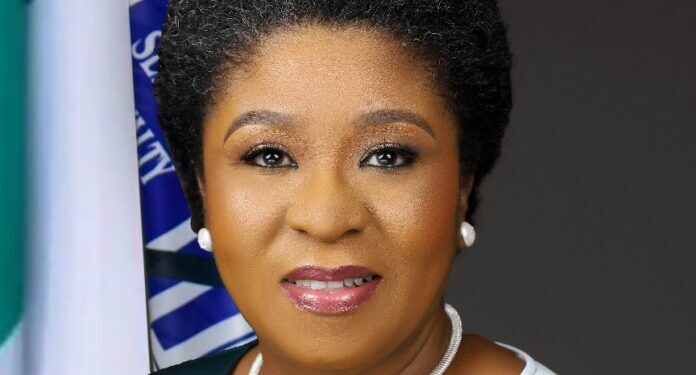By Ebi Kesiena
In a decisive step towards transforming the Nigerian Civil Service, the Head of the Civil Service of the Federation (HCSF), Didi Walson-Jack, on Tuesday inaugurated the Steering and Project Implementation Committees for the Service-wide Personnel Audit and Skills Gap Analysis.
This was contained in a statement signed by Eno Olotu, Director of Information and Public Relations, which emphasized that the exercise was approved to align with the Renewed Hope Agenda of President Bola Tinubu. The initiative seeks to build a modern, efficient, and fit-for-purpose Civil Service by determining the true size, structure, and skills composition of the workforce, while identifying the competencies required for future service excellence.
In her keynote address, Walson-Jack stressed that “the machinery of governance can only function effectively when powered by the right calibre of human capital, strategically deployed and continuously developed.” She noted that the audit will establish a verified, digital personnel database linked to National Identification Numbers (NIN) and Bank Verification Numbers (BVN), thereby eliminating ghost workers, rectifying inconsistencies in staff records, and producing an accurate workforce profile.
The HCSF explained that the initiative will also: identify current and future skills gaps in critical areas such as ICT, project management, public finance, and data analysis; aid the review and strengthening of training programmes to ensure targeted capacity development; enhance Human Resource Management systems through digitalization using the Human Resource Management Information System (HRMIS); and achieve efficiency gains and cost savings by closing financial leakages, eliminating redundancies, and enabling the strategic redeployment of resources.
She further stressed that the exercise is developmental rather than punitive, underscoring its purpose as a data-driven reform to reposition the Federal Civil Service to meet present challenges while preparing for future demands.
The Steering Committee, chaired by Walson-Jack, is comprised of key Permanent Secretaries, the Accountant-General of the Federation, the Director-General of the Budget Office, a representative from the Presidency, and relevant consultants. The committee will provide policy direction, approve key milestones, and ensure alignment with the Federal Civil Service Strategy and Implementation Plan, 2021–2025 (FCSSIP-25).
The Project Implementation Committee, chaired by the Permanent Secretary, Common Services Office, OHCSF, Dr. Danjuma Usman Kalba, consists of senior directors from the OHCSF, a representative from the Office of the Accountant-General of the Federation, the Federal Civil Service Commission, and retired senior civil servants with technical expertise. It will oversee operational tasks including methodology validation, data collection, compliance checks, and timely reporting.
In her welcome remarks, the Permanent Secretary, Service Policies and Strategies Office, Dr. Deborah Odoh, described the exercise as “a significant step towards an efficient, productive, and effective Civil Service,” reaffirming the OHCSF’s vision to build a world-class, professional, and accountable workforce capable of driving Nigeria’s development agenda.
Speaking on behalf of both committees, Dr. Danjuma Usman Kalba commended President Tinubu for approving what he described as “a bold reform fully aligned with the Renewed Hope Agenda.” He noted that the audit is not a routine administrative procedure but a strategic initiative aimed at strengthening institutions and ensuring value for money in governance.
Walson-Jack charged both committees to commence work immediately, executing their mandates with professionalism, diligence, and integrity. She emphasized that the successful delivery of the exercise would lay a strong foundation for a Civil Service that is efficient, productive, incorruptible, and citizen-centred.
The Steering Committee is expected to conclude its work within six months, while the Project Implementation Committee will deliver its outputs within four months.




































